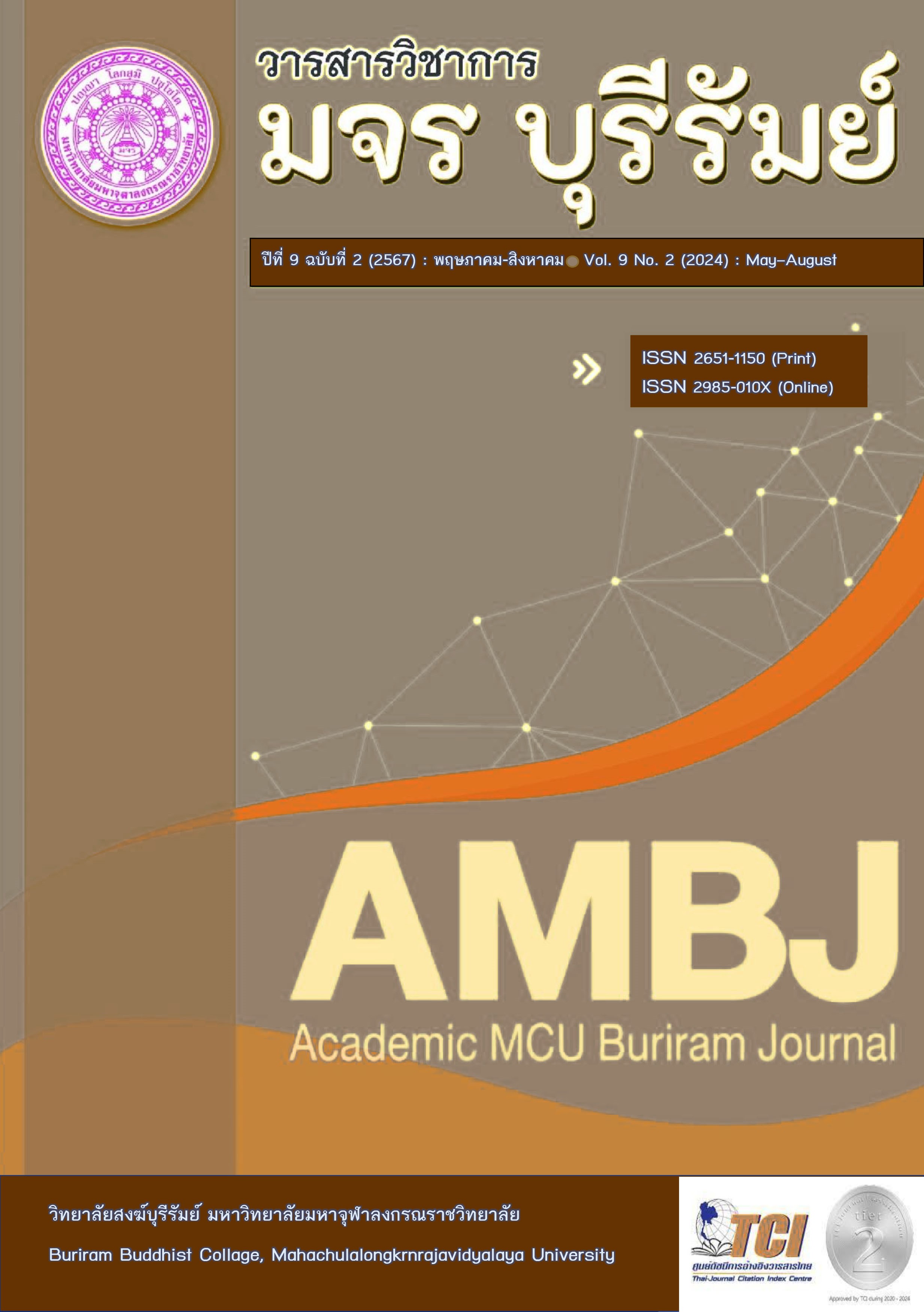Using Science Activity Sets according to STEM Education Subject: Electricity to Promote Problem Solving Skills of Students in Grade 6
Keywords:
Learning Management according to STEM Education, Learning Achievement, Scientific Problem Solving SkillsAbstract
The purposes of this research were: 1) to study the problem-solving skills of Grade 6 students before and after using the science activity set according to STEM Education on the subject of electricity. and 2) to compare the academic achievement on the topic of electricity of Grade 6 students between before and after organizing learning according to STEM Education. The sample group includes 30 Grade 6/2 students at Phai Udom Suksa School, semester 2, academic year 2023, under the Faculty Administration Department. Committee member for the promotion of private education obtained by means of cluster random sampling. The tools used to collect data include learning management plans. Problem solving skills test Academic Achievement Test Data were analyzed using mean, standard deviation. and t-test.
The research results found that:
1. After Activity 1, students' scores on scientific problem solving skills passed the criteria, accounting for 86.67 percent, with an average of 2.53, in the high level. After activity 2, students had a problem-solving skills score of 90.00 percent, with an average of 2.67, in the high level, and after activity 3, students had a problem-solving skills score of 93.33 percent, with an average of 2.80, in the high level criteria.
2. Compare the academic achievement in electricity of Grade 6 students between before and after organizing learning according to STEM Education (STEM Education).
Higher than the pre-study scores, the difference was statistically significant at the .05 level.
References
กระทรวงศึกษาธิการ. (2559). แผนปฏิบัติราชการ ประจำปีงบประมาณ พ.ศ. 2560 ของกระทรวงศึกษาธิการ (เพื่อประกอบการจัดทำคำของบประมาณรายจ่ายประจำปี พ.ศ. 2560). กรุงเทพมหานคร: สำนักนโยบายและยุทธศาสตร์ สำนักปลัดกระทรวงศึกษาธิการ.
จารีพร ผลมูล. (2558). การพัฒนาหน่วยการเรียนรู้บูรณาการแบบ STME สำหรับนักเรียนชั้นมัธยมศึกษาปีที่ 3 : กรณีศึกษาชุมชนวังตะกอ จังหวัดชุมพร. วิทยานิพนธ์การศึกษามหาบัณฑิต สาขาวิชาวิทยาการการศึกษาและการจัดการเรียนรู้. บัณฑิตวิทยาลัย: มหาวิทยาลัยศรีนครินวิโรฒ.
จุรีพร หรรษาวงศ์. (2559). การพัฒนาชุดกิจกรรมการเรียนรู้วิชาวิทยาศาสตร์ของนักเรียนชั้นประถมศึกษาปีที่ 6. วิทยานิพนธ์ครุศาสตรมหาบัณฑิต สาขาวิชาหลักสูตรและการสอน. บัณฑิตวิทยาลัย: มหาวิทยาลัยราชภัฏสวนสุนันทา.
ชวนิดา สุวานิช. (2560). STEM Education กับการจัดการเรียนรู้ เพื่อพัฒนานักศึกษาวิชาชีพครูให้มีลักษณะของผู้เรียนในศตวรรษที่ 21 ภายใต้นโยบาย 4.0. วารสารศึกษาศาสตร์ มหาวิทยาลัยศิลปกร, 15(1), 25-26.
ศศิเทพ ปิติพรเทพิน. (2558). การจัดการเรียนรู้วิทยาศาสตร์กับสังคม แห่งศตวรรษที่ 21. กรุงเทพมหานคร: บอสส์การพิมพ์.
สถาบันส่งเสริมการสอนวิทยาศาสตร์และเทคโนโลยี. (2560). คู่มือครูรายวิชาพื้นฐานวิทยาศาสตร์ ชั้นประถมศึกษาปีที่ 6 กลุ่มสาระการเรียนรู้วิทยาศาสตร์. กรุงเทพมหานคร: สกสค. ลาดพร้าว.
สิรินภา กิจเกื้อกูล. (2558). สะเต็มศึกษา (ตอนที่ 2): การบูรณาการสะเต็มศึกษาสู่การจัดการเรียนรู้ในชั้นเรียน. วารสารศึกษาศาสตร์ มหาวิทยานเรศวร, 17(2), 201-207.
สุธิดา การีมี. (2560). การใช้กระบวนการออกแบบเชิงวิศวกรรม เพื่อส่งเสริมสร้างความคิดสร้างสรรค์ และทักษะการแก้ปัญหา ตอนที่ 1. นิตยสาร สสวท, 46(209), 25-27.
อภิญญา สิงห์โต. (2563). การพัฒนากิจกรรมการเรียนรู้แบบสะเต็มที่ส่งเสริมความสามารถในการคิดแก้ปัญหา สำหรับนักเรียนชั้นมัธยมศึกษาปีที่ 1. วารสารมหาจุฬานาครทรรศ์, 7(7), 387-398.
Downloads
Published
How to Cite
Issue
Section
License
Copyright (c) 2024 Academic MCU Buriram Journal

This work is licensed under a Creative Commons Attribution-NonCommercial-NoDerivatives 4.0 International License.
ทัศนะและความคิดเห็นที่ปรากฏในบทความวารสารฉบับนี้ถือเป็นความรับผิดชอบของผู้เขียนบทความนั้น ไม่ถือเป็นทัศนะและความรับผิดชอบของบรรณาธิการ





